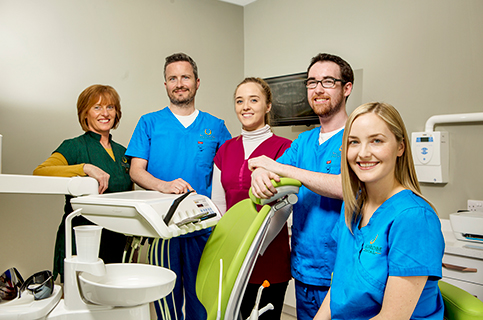At Ballinrobe Dental we focus on preventing dental extractions. However, in some cases extractions are unavoidable:
- Severe decay
- Advanced periodontal disease
- Fractured teeth beyond repair
- Impacted teeth that are infected
- Tooth removal to create space for orthodontics
Every effort is made to avoid tooth extraction at a modern dental practice. Removing teeth can lead to problems relating to chewing, teeth drifting, and can lead to problems related to your Temporomandibular Joint (T.M.J.) (Jaw Joint).
To avoid such problems Dr. O’ Beirne will discuss alternatives to extractions and also replacement options for extracted teeth.
The Extraction Procedure
Simple Tooth Removal
The use of the latest local anaesthetics insures that the process of extracting a tooth is now pain free. Firstly, anaesthetic gel is applied to the gum, making the gum numb even before the injection is given. Dr. O’ Beirne numbs your tooth, jaw bone and gums that surround the tooth. You will be numb for several hours after the procedure also.
During the extraction you will only feel pressure and a firm rocking motion on the tooth.
If you wish to stop at any time during the procedure simply raise your hand. Patients frequently comment that they “didn’t feel a thing” and are amazed that a tooth can now be extracted so easily.
Surgical Extractions
Some teeth, such as impacted wisdom teeth require sectioning or a surgical extraction. It is a very common procedure and is usually done by Dr. O’ Beirne. This involves cutting the tooth into small pieces before removal. A flap may also have to be created in the gum. The area is sutured or “stitched” afterwards. Again, this is a pain free procedure, with advances in modern dentistry.
Surgical Tooth Removal
Removal of Impacted Teeth





